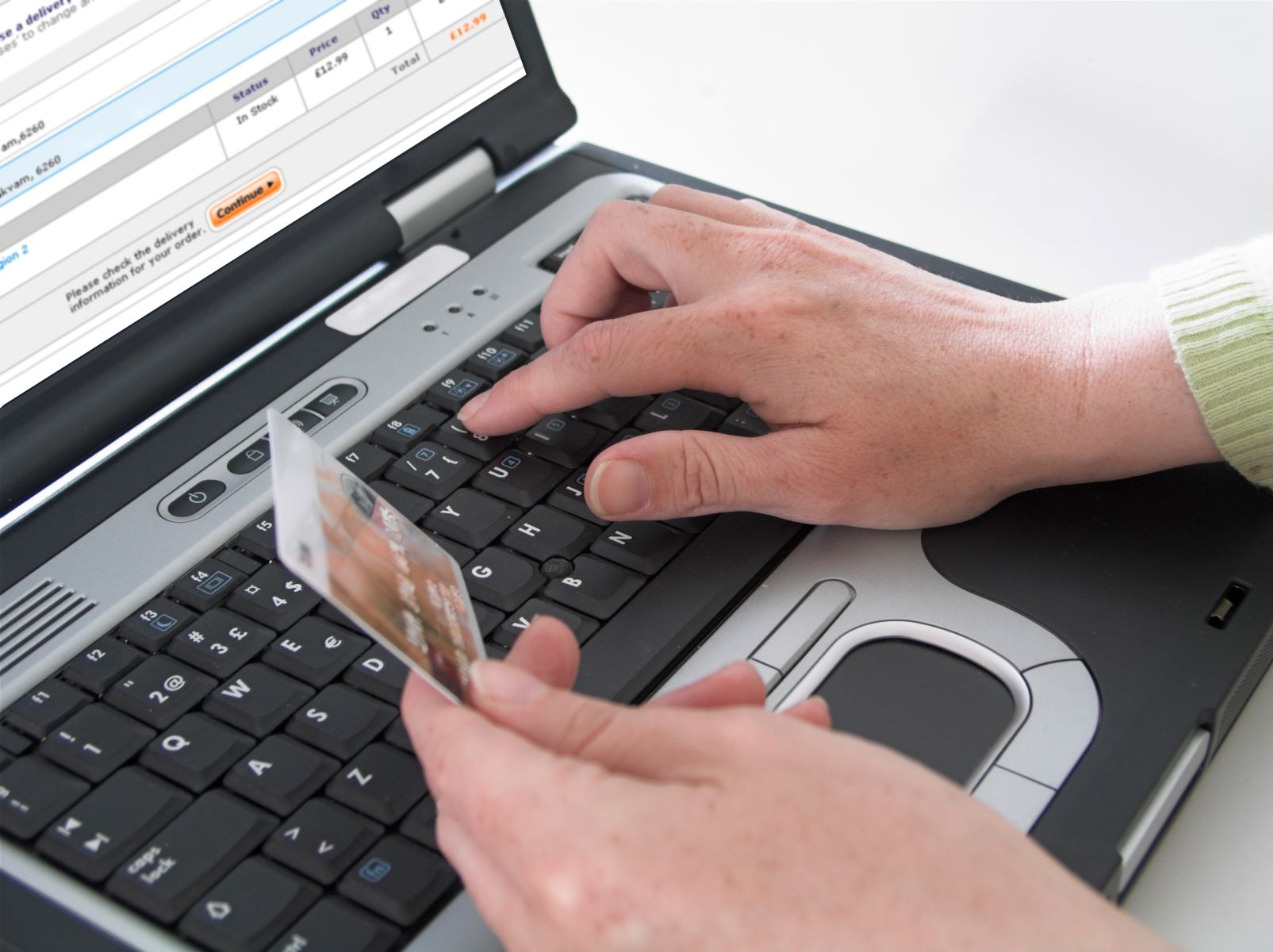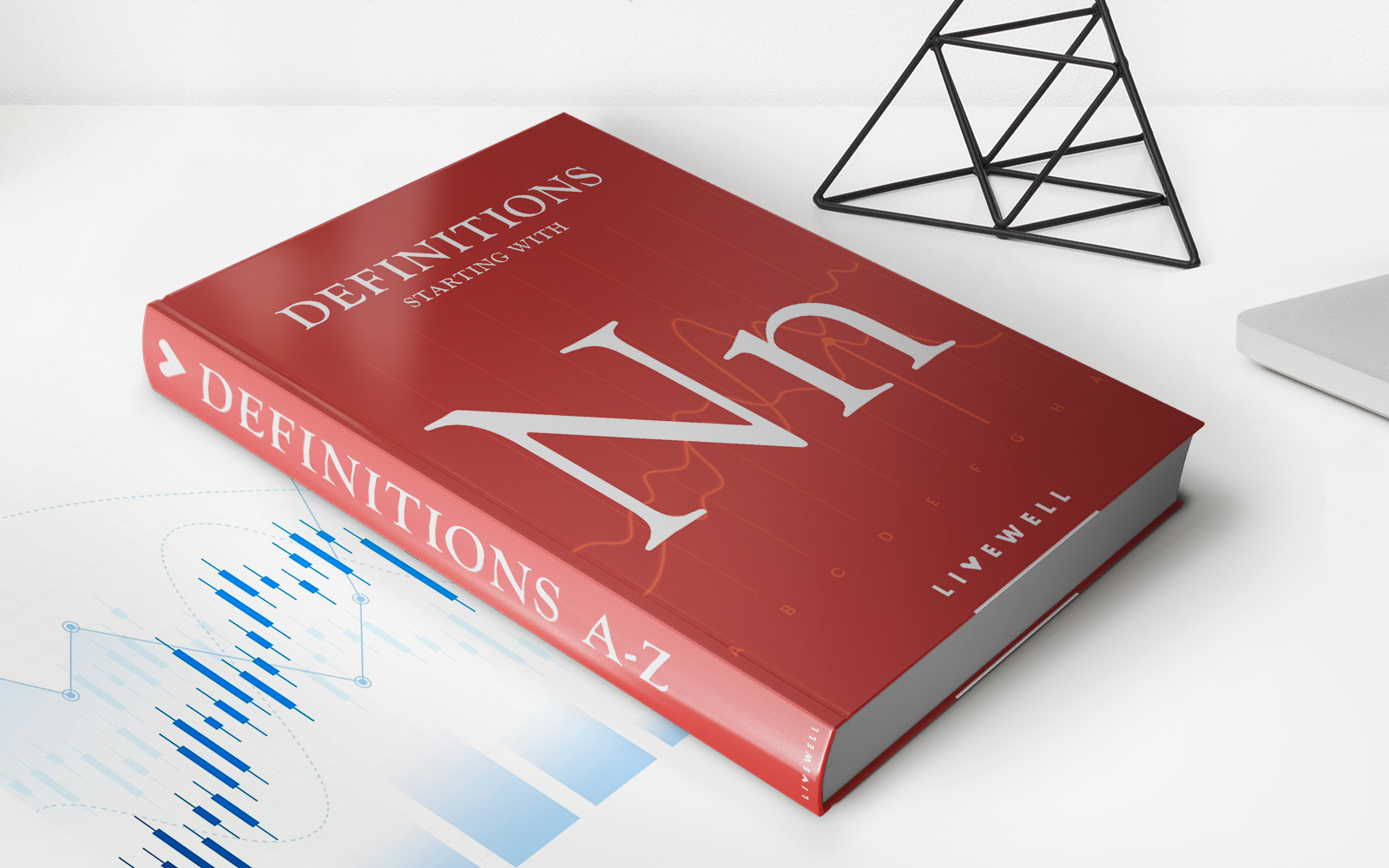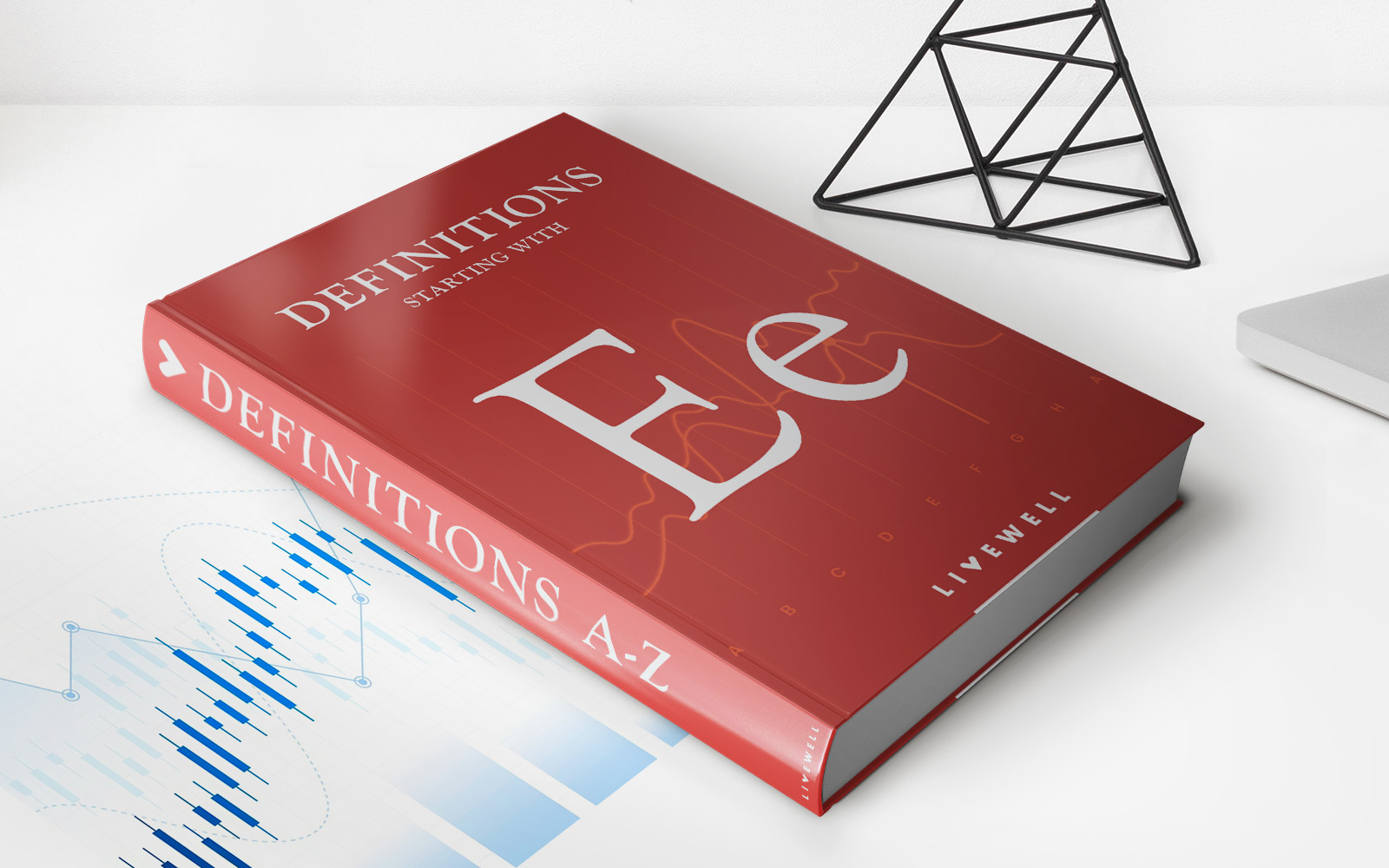

Finance
How To Get Credit Card For First Time
Modified: December 29, 2023
Looking to get a credit card for the first time? Discover valuable tips and information for securing your first credit card and managing your finances effectively.
(Many of the links in this article redirect to a specific reviewed product. Your purchase of these products through affiliate links helps to generate commission for LiveWell, at no extra cost. Learn more)
Table of Contents
- Introduction
- Understanding Credit Cards
- Benefits of Having a Credit Card
- Factors to Consider Before Applying
- Steps to Get a Credit Card for the First Time
- Researching Different Credit Card Options
- Comparing Credit Card Terms and Fees
- Gathering Required Documents and Information
- Applying for a Credit Card
- Tips for Getting Approved
- Building Credit History with Your Credit Card
- Using Your Credit Card Responsibly
- Monitoring Your Credit Card Statements
- Managing Credit Card Debt
- Conclusion
Introduction
Welcome to the world of personal finance! If you’re considering getting a credit card for the first time, you’re taking a significant step towards managing your finances and building a solid credit history. Credit cards have become an essential tool for making purchases, establishing credit, and enjoying various perks and rewards.
However, navigating the credit card landscape can be overwhelming, especially for beginners. With so many options available, understanding the ins and outs of credit cards is essential to make an informed decision that aligns with your financial goals.
In this article, we will guide you through the process of getting a credit card for the first time. We’ll cover everything from understanding credit cards and their benefits to the factors you should consider before applying. We’ll also provide you with valuable tips on how to get approved and manage your credit card responsibly.
By the end of this article, you’ll have a comprehensive understanding of the steps involved in obtaining a credit card and how to use it to your advantage. So let’s dive in and embark on this exciting journey towards financial empowerment!
Understanding Credit Cards
Credit cards are a type of financial tool that allows you to borrow money from a financial institution, typically a bank, to make purchases or pay for services. Unlike debit cards, which use funds directly from your bank account, credit cards provide you with a line of credit that you can borrow from.
When you use a credit card, you are essentially taking a loan from the credit card issuer. The amount you borrow is added to your credit card balance, and you are required to repay it within a specific period, usually by the end of the month. If you don’t pay the full amount, the remaining balance will accrue interest over time, increasing the overall amount you owe.
One of the key benefits of using a credit card is the ability to build a credit history. Your credit history reflects your borrowing and repayment behavior, and it is an essential factor that lenders consider when evaluating your creditworthiness for future loans, such as car loans or mortgages. By using a credit card responsibly and making timely payments, you can establish a positive credit history, which can help you access better interest rates and loan terms in the future.
Another advantage of credit cards is the convenience they offer. They allow you to make purchases online and in-store, and some even come with additional features such as contactless payment, rewards programs, and fraud protection. Additionally, credit cards provide you with an emergency financial backup and can help you manage unexpected expenses.
It’s important to note that credit cards are not free money. While they provide you with access to funds, it’s crucial to use them responsibly. Accumulating high balances, maxing out your credit limit, and missing payments can negatively impact your credit score and make it more difficult to obtain credit in the future.
Understanding the various terms and concepts associated with credit cards, such as interest rates, annual fees, credit limits, and grace periods, is essential before applying for a credit card. In the next sections, we will explore these factors in more detail, helping you make an informed decision when choosing a credit card.
Benefits of Having a Credit Card
Having a credit card offers a range of benefits that can enhance your financial life. Let’s explore some of the key advantages of owning a credit card:
- Convenience and Flexibility: Credit cards provide you with a convenient and flexible way to make payments. Whether you’re shopping online, booking travel accommodations, or making everyday purchases, having a credit card allows for easy and secure transactions.
- Building Credit History: One of the most significant advantages of having a credit card is the opportunity to build a positive credit history. By making timely payments and managing your credit responsibly, you can establish a solid credit score, which is crucial for future financial endeavors, such as applying for loans or mortgages.
- Rewards and Perks: Many credit cards offer rewards programs, where you can earn points, cashback, or airline miles for every dollar spent. These rewards can be redeemed for various benefits, including travel vouchers, gift cards, merchandise, or statement credits. Additionally, some credit cards provide additional perks like travel insurance, purchase protection, extended warranties, or access to exclusive events.
- Emergency Financial Backup: Credit cards can act as a safety net during unexpected financial emergencies. If you encounter an unforeseen expense or have a temporary cash flow problem, having a credit card can provide immediate relief and give you the flexibility to manage the situation with ease.
- Improved Purchasing Power: Credit cards often come with a predetermined credit limit, which increases your purchasing power. This means you can make larger purchases or take advantage of limited-time deals, even if you don’t have the cash on hand at that moment. However, it’s important to remember that responsible spending within your means is crucial to avoid accumulating debt.
While credit cards offer numerous benefits, it’s important to use them responsibly. Remember to make timely payments, keep your balances low, and avoid unnecessary debt. By doing so, you can fully enjoy the advantages of having a credit card while maintaining a healthy and positive financial standing.
Factors to Consider Before Applying
Before you apply for a credit card, it’s important to carefully consider several factors to ensure you make the right choice for your financial situation. Taking the time to evaluate these factors will help you find a credit card that aligns with your needs and preferences. Here are the key factors to consider:
- Interest Rates: The interest rate, also known as the Annual Percentage Rate (APR), is the amount of interest charged on the outstanding balance if you don’t pay off the full amount by the due date. It’s crucial to compare the APRs of different credit cards and choose one with a lower rate to save money on interest charges.
- Fees: Credit cards often come with various fees, such as annual fees, balance transfer fees, late payment fees, and foreign transaction fees. Make sure to review the fee structure of each credit card and assess whether the benefits outweigh the associated costs.
- Credit Limit: The credit limit is the maximum amount you can borrow on your credit card. Consider your spending habits and financial needs to determine what credit limit is suitable for you. It’s important to note that having a higher credit limit doesn’t mean you should max it out—responsible credit card use entails keeping your balances low and manageable.
- Rewards and Perks: If you’re interested in earning rewards or taking advantage of specific perks, such as cashback, travel rewards, or airline miles, make sure to consider credit cards that offer these benefits. Review the rewards program details, including how the rewards are earned, redeemed, and whether there are any restrictions or expiration dates.
- Credit Score Requirements: Different credit cards have varying credit score requirements. If you have a limited credit history or a lower credit score, you may need to consider credit cards designed specifically for individuals with limited or fair credit. On the other hand, if you have a higher credit score, you may be eligible for credit cards with more favorable terms and perks.
- Customer Service: Evaluating the quality of customer service provided by the credit card issuer is essential. You want to have reliable support when you have questions, need assistance with your account, or want to report any issues or fraudulent activity. Look for credit card issuers that have a reputation for excellent customer service.
By taking all these factors into account, you can choose a credit card that suits your financial goals, spending habits, and lifestyle. Keep in mind that responsible credit card use is essential, and it’s important to make timely payments, keep your balances low, and avoid unnecessary debt to maintain a healthy financial standing.
Steps to Get a Credit Card for the First Time
If you’re ready to get a credit card for the first time, follow these steps to ensure a smooth and successful application process:
- Evaluate your financial situation: Before applying for a credit card, take a moment to assess your financial position. Consider your income, existing expenses, and your ability to make timely payments. It’s important to have a clear understanding of your financial capabilities to avoid taking on more debt than you can handle.
- Research different credit card options: Explore the wide range of credit card options available to find one that suits your needs. Look for features such as low annual fees, rewards programs, and low-interest rates. Consider whether you want a credit card from a bank or a specific retailer.
- Compare credit card terms and fees: Once you’ve narrowed down your options, compare the terms and fees of different credit cards. Pay attention to interest rates, introductory offers, cash advance fees, late payment fees, and any other potential charges. Choose a card that offers favorable terms and fits your lifestyle.
- Gather required documents and information: Before starting the application process, gather all the necessary documents and information. This typically includes your Social Security number, proof of income, employment details, and personal identification. Having these ready will help expedite the application process.
- Apply for a credit card: Once you’ve chosen the credit card that best suits your needs, fill out the application form. This can typically be done online or in person. Provide accurate and truthful information to avoid any issues with your application. Submit the application and wait for a response from the credit card issuer.
- Tips for getting approved: To increase your chances of getting approved for a credit card, make sure your credit score is in good standing, pay your bills on time, and keep your debt levels low. If you have a limited or no credit history, you may want to consider applying for a secured credit card or getting a co-signer.
- Building credit history: Once you receive your credit card, use it responsibly to build a positive credit history. Make timely payments, keep your balances low, and avoid overspending. Regularly reviewing your credit report and monitoring your credit score will help you track your progress and identify any potential errors or issues.
- Using your credit card responsibly: It’s crucial to use your credit card responsibly to avoid accumulating debt and damaging your credit score. Only charge what you can afford to repay, create a budget to manage your expenses, and pay your statement balance in full each month to avoid interest charges.
- Monitoring your credit card statements: Regularly review your credit card statements for any fraudulent charges or billing errors. Report any discrepancies to your credit card issuer immediately. Being vigilant about monitoring your statements helps protect your financial well-being.
- Managing credit card debt: If you find yourself in credit card debt, develop a plan to pay it off as soon as possible. Prioritize making larger payments or consider balance transfer options with lower interest rates to help save money on interest charges.
Remember, getting a credit card is a responsibility that requires discipline and financial awareness. By following these steps and using your credit card responsibly, you can establish a strong credit history and enjoy the benefits that come with having a credit card.
Researching Different Credit Card Options
When it comes to credit cards, it’s important to conduct thorough research to find the one that best fits your financial goals and lifestyle. Here are some essential steps to consider when researching different credit card options:
- Determine your spending habits: Take a closer look at your spending habits to understand your purchasing patterns. Are you someone who primarily uses a credit card for everyday expenses or do you frequently travel and make travel-related purchases? Knowing your spending habits will help you narrow down the type of credit card that would provide you with the most benefits.
- Identify your priorities and goals: Define what you expect from a credit card. Are you looking for a card with a low-interest rate? Are rewards and cashback a top priority? Are you interested in exclusive perks or travel rewards? Identifying your priorities will enable you to focus your research on credit cards that align with your specific goals.
- Consider your credit history: Evaluate your credit history to determine your eligibility for different credit cards. Some credit cards are designed for individuals with excellent credit, while others are more suitable for those with limited or fair credit. Reviewing your credit history will help you narrow down the pool of potential credit cards.
- Compare interest rates: Interest rates play a significant role in credit card selection, especially if you anticipate carrying a balance from month to month. Look for credit cards with competitive interest rates, ideally with introductory 0% APR offers. While it’s important to pay your credit card balance in full to avoid interest charges, having a low-interest rate can provide peace of mind if you do carry a balance occasionally.
- Examine rewards programs: If you’re interested in earning rewards or cashback, carefully examine the rewards programs of different credit cards. Look for earning rates, reward redemption options, and any restrictions or expiration dates associated with the rewards program. Choose a credit card with a rewards program that aligns with your spending habits and offers the best value for your purchases.
- Consider annual fees: Some credit cards come with annual fees, which can vary greatly depending on the card’s features and benefits. Consider whether the rewards and perks offered by a card justify the annual fee. If you don’t anticipate using the card frequently or taking advantage of the benefits, it may be more suitable to opt for a credit card with no annual fee.
- Evaluate additional features and perks: Many credit cards offer additional features and perks such as travel insurance, extended warranties, purchase protection, and access to airport lounges. If these features are important to you, research credit cards that provide them. However, keep in mind that these added benefits might come with higher fees or requirements.
- Read customer reviews: Take the time to read reviews and feedback from current credit card holders. This will give you insights into the customer experience, including customer service quality, ease of use, and redemption process for rewards. Pay attention to both positive and negative reviews to get a well-rounded understanding of the credit cards you’re considering.
- Check issuer’s reputation and reliability: Evaluate the reputation and reliability of the credit card issuer. Look for established financial institutions with a track record of excellent customer service and strong financial stability. A reputable issuer will offer reliable support and make your credit card experience more seamless.
- Seek expert advice: If you’re still unsure about which credit card is right for you, consider seeking advice from financial experts or utilizing online comparison tools. These resources can provide valuable insights and help you make an informed decision based on your specific financial situation and goals.
Remember, thorough research is key to finding a credit card that maximizes your benefits while aligning with your lifestyle and financial needs. By investing time in research, you’ll be well-equipped to make a confident choice when selecting your first credit card.
Comparing Credit Card Terms and Fees
When deciding on a credit card, it’s crucial to compare the terms and fees associated with different options. Understanding the details of credit card terms and fees will allow you to make an informed decision. Here are some key aspects to consider:
- Annual Percentage Rate (APR): The APR represents the interest rate charged on any outstanding balance if you don’t pay the full amount by the due date. Compare the APRs of different credit cards to find one with a lower rate. Opting for a credit card with a low APR can save you money on interest charges, especially if you anticipate carrying a balance month to month.
- Introductory APR: Some credit cards offer an introductory 0% APR for a certain period. This can be beneficial if you have a large purchase planned or want to transfer a balance from another high-interest credit card. Compare the length of the introductory period, as well as any fees associated with balance transfers, to take advantage of these offers.
- Annual Fee: Consider whether the credit card charges an annual fee. Some credit cards come with an annual fee in exchange for various perks and benefits. Evaluate the benefits provided by the card and determine whether they outweigh the yearly cost. If you don’t anticipate utilizing the additional features, it may be more suitable to opt for a credit card with no annual fee.
- Balance Transfer Fees: If you plan to transfer balances from other credit cards, check whether there are any balance transfer fees. Some credit cards charge a percentage of the transferred balance as a fee. Compare these fees to ensure you’re selecting a credit card that offers a reasonable cost for balance transfers.
- Late Payment Fees: Late payment fees can quickly add up and impact your financial well-being. Compare the late payment fees of different credit cards and opt for one with lower or no late payment fees if possible. Remember, making timely payments is essential to avoid unnecessary charges and maintain a strong credit history.
- Foreign Transaction Fees: If you frequently travel or make purchases in foreign currencies, consider credit cards that have lower or no foreign transaction fees. These fees can significantly increase the cost of your purchases abroad. Opting for a credit card that waives foreign transaction fees can save you money when using your card internationally.
- Cash Advance Fees: Cash advances allow you to withdraw cash using your credit card, but they often come with additional fees. Review the cash advance fees and consider the potential costs associated with using this feature. Keep in mind that cash advances typically accrue interest immediately, so it’s advisable to avoid using this option unless absolutely necessary.
- Penalty APR: Find out if a credit card has a penalty APR and what actions could trigger it. Penalty APRs are higher interest rates that can be applied if you make late payments or violate the terms of your credit card agreement. Being aware of these penalties will encourage responsible use and help you avoid unnecessary increases in interest rates.
Comparing credit card terms and fees will give you a comprehensive understanding of the cost and benefits associated with each option. Remember, it’s essential to choose a credit card that aligns with your financial situation, spending habits, and goals. By carefully comparing these factors, you can select a credit card that provides you with the most advantageous terms and helps you maintain financial stability.
Gathering Required Documents and Information
Before applying for a credit card, it’s important to gather all the necessary documents and information to streamline the application process. Having these documents ready will help ensure a smooth and efficient application. Here’s a list of common items you may need:
- Personal Identification: You will typically need a valid form of identification, such as a driver’s license, passport, or state ID card. This is required to verify your identity and ensure that you meet the minimum age requirements for obtaining a credit card.
- Social Security Number (SSN): You will need your SSN for most credit card applications. This allows the credit card issuer to verify your identity and conduct a credit check. Ensure you have your SSN readily available when applying for a credit card.
- Proof of Income: Many credit card applications require proof of income to assess your ability to repay any debts incurred. This can include recent pay stubs, bank statements, or tax returns. If you’re self-employed, you may need to provide additional documentation, such as profit and loss statements or business tax returns.
- Employment Details: Some credit card applications require you to provide information about your current employment, including your employer’s name, address, and your job title. Be prepared to provide accurate and up-to-date employment details.
- Previous Address History: Credit card applications typically ask for your previous address history, often for the past two years. Make sure to have a record of your previous addresses, including the dates you lived there, as this information may be required during the application process.
- Bank Account Details: You may need to provide details of your bank account, such as the bank name, account number, and routing number. This information is often required if you choose to set up automatic payments or make a security deposit for a secured credit card.
- Financial Statements: In some cases, particularly for business credit cards, you may be required to provide financial statements, such as balance sheets or income statements. These documents demonstrate the financial health of your business and help assess your creditworthiness.
- Additional Information: Depending on the credit card issuer and the specific application requirements, you may be asked to provide additional information. This could include details about your housing situation (owning or renting), monthly housing payments, or other financial obligations.
Ensure that the information you provide on the credit card application is accurate and up to date. Double-check your application before submitting to avoid any errors or delays in the approval process. Keep copies of all the documents you submit for your records.
By gathering the required documents and information in advance, you’ll have everything you need to complete the credit card application accurately and efficiently. This will increase your chances of a smooth application process and obtaining the credit card you desire.
Applying for a Credit Card
Once you have done your research, compared different credit card options, and gathered all the necessary documents, you are ready to apply for a credit card. Follow these steps to complete the application process:
- Online or In-person Application: Determine whether you want to apply for a credit card online or in person. Many credit card issuers offer secure online applications that allow you to apply from the comfort of your own home. Alternatively, you may choose to visit a local bank branch to complete the application in person.
- Choose the Credit Card: Select the specific credit card you want to apply for. Ensure it aligns with your financial goals, offers the features and benefits you desire, and matches your credit history and income level.
- Application Form: Fill out the application form accurately and completely. Provide all the required personal information, including your name, address, contact information, Social Security number, and employment details. Ensure that all the information you provide is correct and up to date.
- Read the Terms and Conditions: Carefully review the terms and conditions of the credit card before submitting your application. Pay attention to important details such as interest rates, annual fees, and any promotional offers. Understanding the terms and conditions will help you make informed decisions and avoid any surprises later on.
- Submit the Application: Once you have completed the application form, review it to ensure accuracy and completeness. Double-check that all the information is entered correctly. Then, submit the application. If you are applying online, click the “Submit” button. If you are applying in person, hand your completed application to the bank representative or follow their instructions.
- Confirmation and Follow-up: After submitting your application, wait for confirmation from the credit card issuer. This confirmation may come via email, text message, or mail. It will typically include details about the status of your application, such as whether it has been approved, denied, or if further information is required. If you don’t receive a response within a reasonable timeframe, consider contacting the credit card issuer for an update.
- Activate Your Credit Card: Once you have been approved for a credit card, you will receive it in the mail. Activate your credit card by following the issuer’s instructions, which may involve calling a toll-free number or activating it online. Activate your credit card promptly to start enjoying its benefits and features.
It is essential to keep copies of all the documents you submitted and any communication regarding your credit card application. This will serve as proof if any issues arise or if you need to refer back to any details during your credit card journey.
Remember to use your credit card responsibly, make timely payments, and keep your balances low to ensure a positive credit history. By having a clear understanding of the application process and responsibly managing your credit card, you can make the most of this financial tool and build a strong financial foundation.
Tips for Getting Approved
Getting approved for a credit card can sometimes be a competitive process, especially if you have limited credit history or a lower credit score. However, there are steps you can take to increase your chances of getting approved. Here are some tips to help you along the way:
- Check your credit score: Before applying for a credit card, check your credit score. Understanding where you stand can help you target credit cards that are more suitable for your credit profile. If your score is low, consider improving it before applying.
- Pay your bills on time: Making timely payments is crucial for maintaining a positive credit history. Consistently paying your bills on time shows lenders that you are responsible and reliable, increasing your chances of getting approved for a credit card.
- Reduce your debt: High levels of existing debt can negatively impact your creditworthiness. Before applying for a credit card, make an effort to reduce your debt as much as possible. Lower debt levels demonstrate that you can manage your finances effectively.
- Have a stable income: Lenders want to ensure that you have a steady income to support your credit card payments. Having a stable job and a consistent income can increase your chances of getting approved.
- Consider a secured credit card: If you have limited credit history or a lower credit score, consider applying for a secured credit card. Secured cards require a cash deposit as collateral, making them less risky for lenders. Using a secured credit card responsibly can help build your credit and increase your chances of being approved for unsecured credit cards in the future.
- Apply for cards suited to your credit profile: Each credit card has specific credit score requirements. Applying for cards that align with your credit profile increases your chances of approval. Research credit cards that are designed for individuals with limited credit history or fair credit scores.
- Limit the number of applications: Submitting multiple credit card applications within a short period can negatively impact your credit score. Each credit card application results in a hard inquiry on your credit report, which can temporarily lower your score. Only apply for credit cards you genuinely need or are confident you have a good chance of being approved for.
- Review pre-qualified offers: Many credit card issuers provide pre-qualified offers, indicating that you have a high chance of approval. Take advantage of these offers as they minimize the risk of rejection and the associated impact on your credit score.
- Double-check your application: Before submitting your application, review it carefully. Ensure that all the information is accurate and complete. Any errors or omissions can delay the approval process or result in a denial.
- Consider a co-signer: If you’re having difficulty getting approved on your own, you may consider applying with a co-signer who has a stronger credit history. This can increase your chances of approval, as the co-signer’s creditworthiness provides additional security to the lender.
Remember, approval for a credit card is not guaranteed, and each credit card issuer has its own criteria for evaluating applications. Following these tips can increase your chances of getting approved, but ultimately, responsible credit management is key to maintaining a positive credit profile.
Building Credit History with Your Credit Card
Obtaining a credit card presents an excellent opportunity to start building a positive credit history. Establishing a solid credit history is crucial because it can greatly impact your financial future. Here are some key steps to help you build credit history using your credit card:
- Make timely payments: Paying your credit card bill on time is one of the most important factors in building credit history. Late or missed payments can have a significant negative impact on your credit score. Set up automatic payments or reminders to ensure you never miss a payment.
- Keep your balances low: Aim to keep your credit card balances below 30% of your credit limit. Keeping your balances low demonstrates responsible credit usage and can positively impact your credit score. Higher credit utilization ratios can indicate a greater likelihood of financial strain, which can have a negative impact on your creditworthiness.
- Avoid maxing out your credit card: It’s best to avoid maxing out your credit card, even if you promptly pay off the balance. Maxing out your credit card can negatively affect your credit score and send a signal to lenders that you heavily rely on credit, making you a higher risk borrower.
- Monitor your credit limit increases: Over time, you may become eligible for credit limit increases on your credit card. While having a higher credit limit can be beneficial, ensure you exercise caution. A significant increase in your credit limit without a corresponding increase in income or responsible credit management can potentially lead to excessive credit card debt.
- Use your credit card regularly: To build a credit history, it’s essential to use your credit card regularly. Make small purchases and pay them off in full each billing cycle. Consistently demonstrating responsible credit usage over time will positively impact your credit score.
- Avoid opening too many credit accounts at once: Opening multiple credit accounts within a short period can make you appear financially unstable and can negatively impact your credit score. Prioritize responsible usage of one or two credit cards to build a strong credit history.
- Keep old credit accounts open: Closing old credit accounts may seem like a good idea, but it can potentially harm your credit history. Length of credit history is an important factor in determining your credit score, so keeping old accounts open, especially if they have positive payment history, can benefit your credit profile.
- Regularly review your credit report: Monitor your credit report regularly to ensure its accuracy and detect any errors or fraudulent activity. Request a free copy of your credit report from each of the major credit bureaus annually, and review it to ensure all the information is correct. Dispute any inaccuracies promptly to prevent any negative impact on your credit score.
- Be patient and consistent: Building credit history is a gradual process that requires patience and consistency. By consistently practicing responsible credit usage and paying your bills on time, you will gradually establish a positive credit history over time.
- Seek guidance if needed: If you are new to credit or unsure about the best strategies for building credit, consider seeking guidance from a financial advisor or credit counseling service. They can provide personalized advice based on your financial situation and help you establish healthy credit habits.
Building credit history takes time, but by following these steps and maintaining responsible credit card usage, you can establish a solid credit foundation. Building a positive credit history will open doors to better loan terms, lower interest rates, and increased financial opportunities down the line.
Using Your Credit Card Responsibly
A credit card can be a valuable financial tool, but it’s essential to use it responsibly to avoid falling into debt and damaging your credit score. Here are some tips to help you use your credit card responsibly:
- Create a budget: Establish a budget to track your spending and ensure that you can comfortably afford your credit card payments. Monitor your expenses and make sure that your credit card usage fits within your budgetary constraints.
- Pay your balance in full: Whenever possible, pay your credit card balance in full each month. This helps you avoid paying interest charges and ensures responsible credit card usage. If you cannot pay the full balance, aim to at least pay more than the minimum payment to reduce your overall debt.
- Avoid unnecessary spending: Use your credit card for essential purchases and avoid unnecessary expenses. Impulsive buying can lead to financial strain and result in accumulating credit card debt. Think carefully before making a purchase and consider whether it aligns with your needs and budget.
- Monitor your credit card statements: Regularly review your credit card statements to verify all transactions and detect any potential fraudulent activity. Promptly report any unauthorized charges to your credit card issuer to protect yourself from financial losses.
- Keep track of your credit limit: Stay aware of your credit limit and avoid exceeding it. Overutilization of your credit limit can negatively impact your credit score and make it more difficult to manage your debt. Aim to keep your credit card balances well below your credit limit.
- Avoid taking cash advances: Cash advances typically come with high fees and interest rates. Use your credit card for purchases instead of taking cash advances, as the latter can lead to additional costs and debt accumulation.
- Be mindful of promotional offers: Credit card issuers often provide promotional offers, such as zero-interest balance transfers or deferred interest periods. While these can be beneficial, make sure you understand the terms and conditions associated with these offers. Be aware of any fees involved and ensure you can meet the requirements to avoid any future pitfalls.
- Keep your credit card secure: Protect your credit card information and take necessary precautions to prevent fraud. Only provide your credit card details on secure websites, regularly update your passwords, and notify your credit card issuer immediately if your card is lost or stolen.
- Avoid applying for multiple credit cards concurrently: Applying for multiple credit cards within a short period can raise red flags for lenders and potentially lower your credit score. Consider your needs carefully and only apply for credit cards that align with your financial goals.
- Practice self-discipline: Use your credit card responsibly and remember that it is a tool to help you manage expenses, build credit history, and enjoy benefits. Practice self-discipline and resist the temptation to overspend or rely heavily on credit. Only charge what you can afford to pay off in a timely manner.
Using your credit card responsibly is essential for maintaining a healthy financial life. By following these tips, you can avoid unnecessary debt, build a positive credit history, and enjoy the benefits and convenience that come with responsible credit card usage.
Monitoring Your Credit Card Statements
Monitoring your credit card statements is an essential part of responsible credit card management. Regularly reviewing your statements allows you to track your spending, detect any errors or discrepancies, and protect yourself from fraudulent activity. Here are some key reasons why monitoring your credit card statements is crucial:
- Identify fraudulent activity: Monitoring your credit card statements helps you quickly identify and report any unauthorized or fraudulent charges. Review each transaction carefully and ensure they align with your purchases. If you notice any suspicious activity, contact your credit card issuer immediately to report it and resolve the issue.
- Detect errors and billing discrepancies: Occasionally, errors may occur on your credit card statements, such as incorrect charges or billing discrepancies. By monitoring your statements regularly, you have the opportunity to catch these errors promptly and resolve them with your credit card issuer before they affect your finances.
- Manage your budget and spending: Your credit card statements provide an overview of your spending habits and can be a valuable tool for budgeting and financial planning. By reviewing your statements, you can assess where your money is going, identify areas where you may be overspending, and make necessary adjustments to stay within your budget.
- Verify your payments: Check your credit card statements to ensure that your payments have been correctly credited. Occasionally, errors can occur during the payment processing, and monitoring your statements allows you to confirm that your payments have been applied as intended.
- Track rewards and benefits: If your credit card offers rewards, cashback, or other benefits, monitoring your statements allows you to track your accumulated rewards and ensure they are being credited properly. This helps you maximize the value of your credit card rewards program and take advantage of any bonus offers.
- Review interest charges and fees: Credit card statements provide a breakdown of any interest charges, fees, or penalties associated with your account. Reviewing these charges helps you understand the cost of carrying a balance or any additional fees that may impact your finances.
- Stay informed about changes to terms and conditions: Credit card issuers may occasionally make changes to the terms and conditions of your credit card. Monitoring your statements ensures that you are aware of any updates, such as changes in interest rates, fees, or rewards programs. This allows you to make informed decisions about your credit card usage.
- Set alerts and notifications: Many credit card issuers offer alert services that can notify you of specific transactions, payment due dates, or other account-related information. Take advantage of these notification features to stay on top of your credit card activity and ensure you are promptly informed of any important updates.
- Keep documentation for future reference: Maintaining a record of your credit card statements can be helpful for future reference and financial planning. It allows you to track your financial history, reconcile expenses, and provide supporting documents when needed.
Regularly monitoring your credit card statements is a proactive step towards maintaining healthy financial habits. By being vigilant with your credit card usage and staying informed about your account activity, you can protect yourself from fraud, avoid errors, and effectively manage your finances.
Managing Credit Card Debt
Managing credit card debt is crucial for financial stability and maintaining a positive credit profile. While responsible credit card use is important, sometimes debt can accumulate unexpectedly. Here are some key strategies for effectively managing credit card debt:
- Create a repayment plan: Take a proactive approach by creating a repayment plan for your credit card debt. Determine how much you can afford to pay each month and develop a timeline for fully paying off your balances. Stick to this plan to gradually reduce your debt over time.
- Pay more than the minimum payment: Whenever possible, pay more than the minimum payment required. Paying only the minimum prolongs the repayment process and increases the overall interest you will pay. By paying more than the minimum, you can accelerate your debt reduction efforts.
- Prioritize high-interest debt: If you have multiple credit cards with varying interest rates, focus on paying off the card with the highest interest rate first. This strategy saves you money on interest charges and helps you eliminate high-cost debt sooner.
- Consolidate your debt: Consider consolidating your credit card debt into a single loan or transferring balances to a credit card with a lower interest rate. This helps streamline your payments and may save you money on interest, but be mindful of any fees associated with balance transfers or consolidation.
- Communicate with your credit card issuer: If you’re experiencing difficulty making payments, reach out to your credit card issuer and explain your situation. They may be willing to work with you to establish a payment plan or offer temporary relief options.
- Avoid adding to your debt: To effectively manage your credit card debt, refrain from accruing additional debt. Pause unnecessary expenses and focus on reducing your existing balances. Use cash or a debit card for purchases instead of relying on credit cards.
- Consider credit counseling: If you’re struggling to manage your credit card debt, credit counseling can provide valuable guidance. Credit counselors can help you develop a budget, negotiate with creditors, and implement strategies to pay off your debt more effectively.
- Track your progress: Monitor your progress as you pay off your credit card debt. Celebrate small victories along the way, such as paying off a specific card or reaching a milestone in your repayment plan. Tracking your progress helps you stay motivated and committed to becoming debt-free.
- Review your spending habits: Analyze your spending habits and identify areas where you can cut back. Adjust your budget to allocate more money towards debt payments. Reevaluate your needs versus wants and make conscious decisions about how you allocate your funds.
- Seek professional assistance if needed: In more severe cases of debt, it may be necessary to seek professional assistance, such as debt settlement or bankruptcy options. Consult with a financial advisor or credit counselor to explore the best course of action for your specific situation.
Remember, managing credit card debt requires commitment and discipline. By implementing these strategies and prioritizing debt repayment, you can regain control of your finances and work steadily towards becoming debt-free.
Conclusion
Congratulations on taking the initiative to learn about credit cards and their responsible usage. Obtaining a credit card for the first time can be an exciting step towards financial independence. By understanding the fundamentals of credit cards, evaluating your options, and using them responsibly, you can reap the benefits they offer while building a strong credit history.
Throughout this guide, we’ve explored the importance of understanding credit cards, the benefits they provide, and the factors to consider before applying. We’ve also discussed the steps involved in getting a credit card for the first time, from researching options to completing the application process successfully.
Furthermore, we’ve highlighted the significance of responsible credit card usage, including tips for getting approved, building credit history, and managing credit card debt. By implementing these strategies, you can maintain a healthy financial life, protect your credit score, and work towards achieving your financial goals.
Remember, responsible credit card usage involves making timely payments, keeping balances low, and using credit cards within your means. Regularly monitoring your statements, reviewing your credit score, and managing your debt effectively are essential steps to financial well-being.
As you embark on your credit card journey, continue to educate yourself about personal finance and make informed decisions. Adapt your financial habits based on your unique circumstances, and seek professional advice when needed.
By investing time and effort into using your credit card wisely, you can establish a solid credit foundation, obtain better loan terms in the future, and work towards achieving long-term financial success.
Remember, credit cards can be powerful tools when used responsibly. Enjoy the convenience, rewards, and financial flexibility they provide while maintaining a disciplined approach to ensure your financial well-being.














